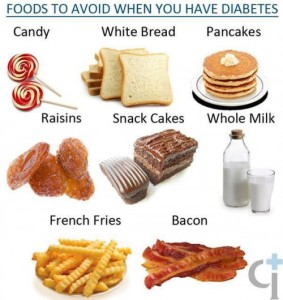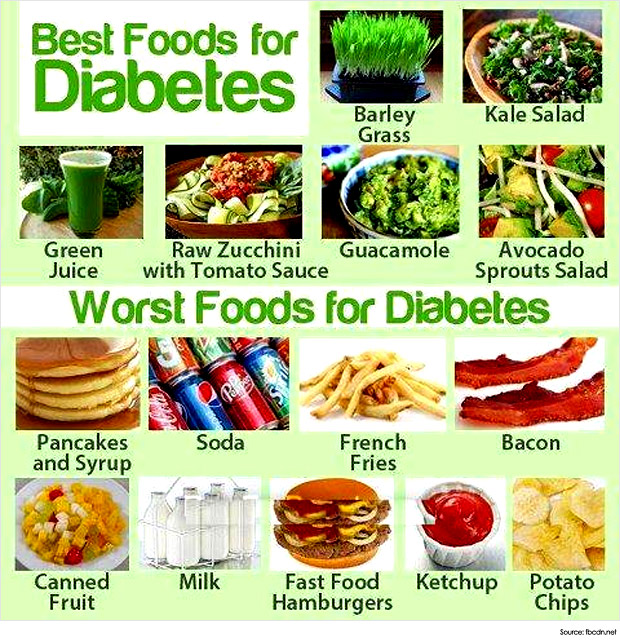Diabetes is on the rise. The number of people looking for healthy eating advice who suffer from diabetes is increasing in tandem. One simple web search for diabetes and diet will bring up a dizzying array of topics and suggestions, some of them contradictory. This can be incredibly frustrating for a patient or family member who just needs a concise, helpful suggestion. In this article we’re going to look at some of the more telling contradictions between health professionals, while highlighting which pieces of advice are universal. This will provide you with a much better idea of which foods to avoid and which to include in your diet.
Why is There so Much Disagreement?
It isn’t that health professionals want to confuse the issue of how best to control diabetes through diet, but rather that they are basing their advice on various schools of thought and scientific studies. These disagreements occur mostly because:
Nutritional Science is Difficult:
Trying to figure out how foods affect a healthy body, never mind one with an underlying condition, is extremely complex. There are so many factors at play, so many other lifestyle and genetic variations which make it difficult to assess whether a food is having an effect, never mind how it actually does it, that it’s no surprise some scientific studies contradict each other. While this is a natural part of the scientific process, where researchers test and contradict each other until the most reliable evidence for a position is found, that’s no comfort to a diabetes patient who wants to know how to proceed to control their condition. It’s frustrating, but unfortunately relatively unavoidable. Positions and advice will alter as more data comes in, bringing us closer to the truth.
Different Disciplines:
There are a few different professions which offer advice on diabetes. Doctors and nurses may have one opinion, while a dietician has another. Still, a consultant dealing specifically with diabetes may base their opinion on cutting edge studies not widely published yet. Various healthcare professions will base opinion on different sources, and therefore there is disagreement.
Individual Biochemistry:
As 21st century medicine progresses, much focus is being placed on the difference between individual biochemistries. In other words, what affects one person in a positive way could affect another in a negative way. For this reason, some dietary advice may be contradictory as in some situations it is beneficial and in others it is not.
Most Effective Dietary Advice For Diabetics
Taking these contradictions into account, a great approach to figuring out what’s best for you is to look at the health advice which health experts agree on, rather than focussing on what they disagree about. This does not mean that you cannot try other dietary advice, but while there may be disagreement about the influence foods like pasta have on a diabetic’s blood sugar, there are other types of food which are looked on positively by most.
For the most part, dieticians agree that a well-balanced diet is critical for diabetics. This includes:
- Eliminating high density processed foods like pastries, biscuits, cakes, and potato chips.
- Reduce sugar intake.
- Minimize processed meats.
- At least two portions of fish per week.
- Reduce or eliminate alcohol.
- Reduce sodium intake.
- Reduce red meat intake.

But it isn’t just about what you eliminate, it’s also about what you include or substitute into your diet.
This includes:
- Green vegetables
- High fiber
- Varied diet
- Nuts
- Lean chicken
But there are disagreements. As reported by Diabetes.co.uk. The British National Health Service bases its advice on the research it is given; however, this may not be as up-to-date as other sources. This is just one example of where disagreements can be found.
These disagreements focus on the issue of starchy carbohydrates. These include:

- Bread
- Pasta
- Rice
- Cereals
- Potatoes
For many, these look like healthy options, but the science isn’t clear for Type 2 diabetics. More and more research is showing that starchy carbohydrates, while themselves not containing a lot of sugar, actually spike glucose levels when digested, making them counterproductive for those with diabetes, or those hoping to prevent the disease.
Furthermore, there is debate about fruit and fruit juices. While fruit juices contain an abundant amount of nutrients, they also contain a lot of sugar. Whole fruit may also be an issue, despite the high fibre intake, those eating large amounts of fruit may be at risk.
The jury is unfortunately still out on this argument, but what most dieticians and other health experts agree upon is that eating high fiber vegetables is an excellent way to control your blood sugar levels.

